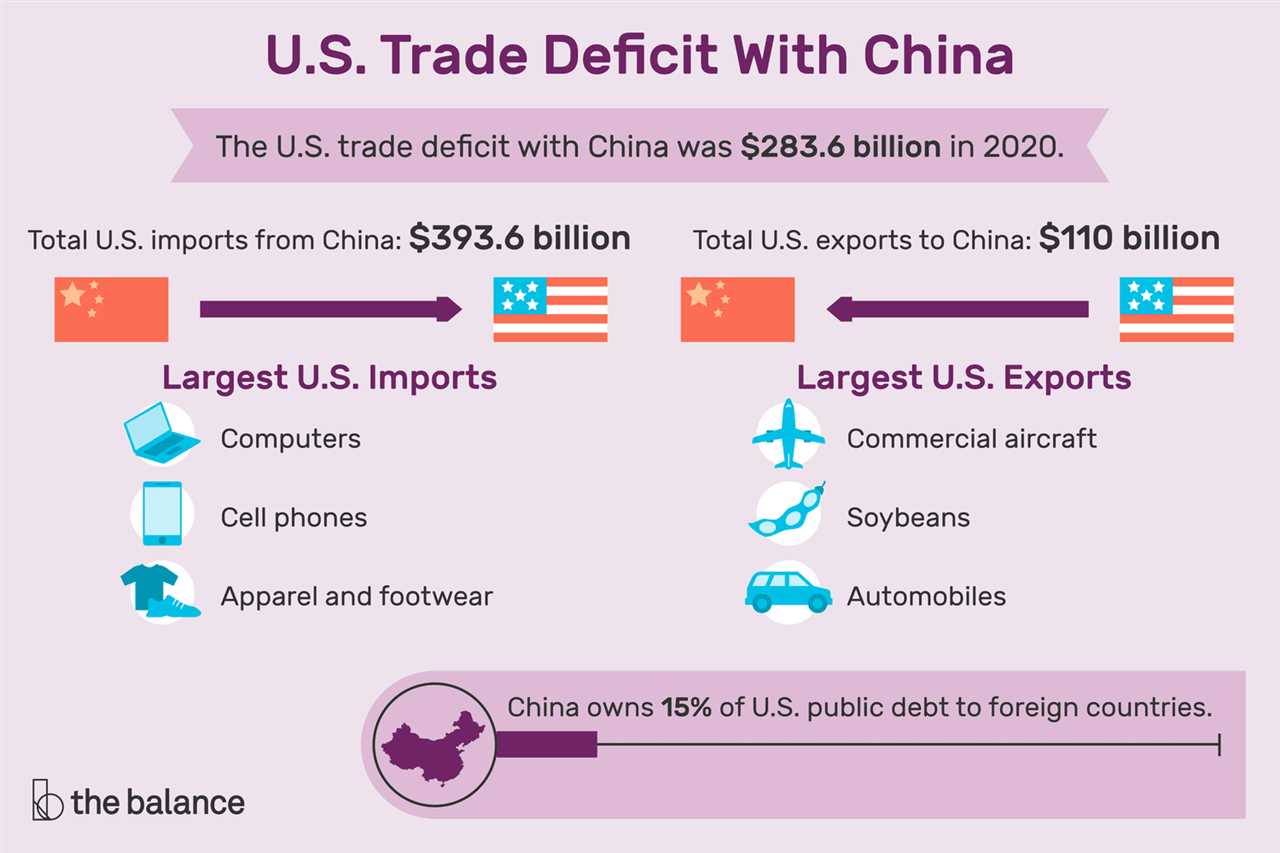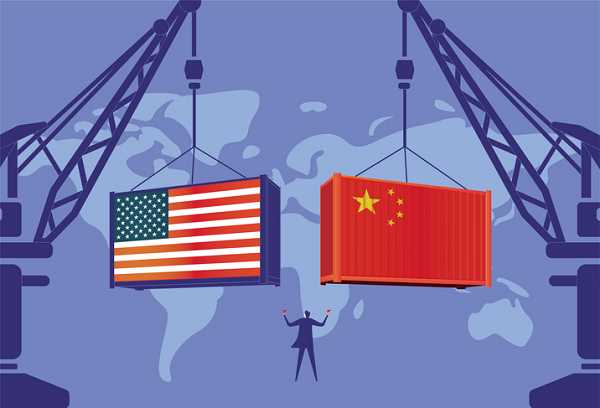Trade Wars: A Comprehensive Analysis of History
A trade war is a situation where countries impose tariffs or other trade barriers on each other in an attempt to protect their domestic industries and gain an advantage in international trade. It is a form of economic conflict that can have far-reaching consequences for global trade and economic growth.
Overview of Trade Wars
Trade wars have been a recurring phenomenon throughout history, with countries engaging in trade disputes and retaliatory measures to protect their own interests. These conflicts can arise due to various reasons, such as unfair trade practices, intellectual property theft, or disagreements over trade policies.
Trade wars can have both short-term and long-term effects on the economies involved. In the short term, they can lead to higher prices for imported goods, reduced exports, and job losses in industries that rely heavily on international trade. In the long term, trade wars can disrupt global supply chains, hinder economic growth, and strain diplomatic relations between countries.
Causes and Effects of Trade Wars

Trade wars can be triggered by a variety of factors. One common cause is the perception of unfair trade practices, such as dumping or subsidies, which can harm domestic industries. Countries may also impose trade barriers to protect their national security interests or to address concerns about intellectual property theft.
The effects of trade wars can be wide-ranging. On the one hand, they can provide short-term protection for domestic industries and help create jobs. On the other hand, they can lead to higher prices for consumers, reduced choices, and retaliation from trading partners, which can further escalate the conflict.
Notable Examples of Trade Wars in History
Trade wars have occurred throughout history, with some notable examples including the Smoot-Hawley Tariff Act of 1930, which contributed to the Great Depression, and the recent trade tensions between the United States and China. These conflicts have had significant impacts on global trade and have shaped the economic landscape of the countries involved.
It is important to note that trade wars are not a zero-sum game. While they may provide short-term benefits for some industries, the overall impact on the global economy can be detrimental. Finding mutually beneficial solutions through negotiation and cooperation is often a more sustainable approach to resolving trade disputes.
Overview of Trade Wars
A trade war is a conflict between two or more countries characterized by the imposition of tariffs, quotas, or other trade barriers on each other’s goods and services. These trade barriers are implemented with the intention of protecting domestic industries and promoting economic growth. However, trade wars can have significant negative consequences for both the countries involved and the global economy as a whole.
Trade wars typically begin when one country believes that its domestic industries are being unfairly disadvantaged by the trading practices of another country. This can include actions such as dumping, which is when a country exports goods at a lower price than what it charges domestically, or the theft of intellectual property. In response, the affected country may impose tariffs or other trade barriers on the goods and services of the offending country.
One of the main reasons why trade wars are a cause for concern is their potential to escalate. As one country imposes trade barriers, the other country is likely to respond with its own retaliatory measures. This can create a cycle of escalating tariffs and trade restrictions, leading to a significant reduction in global trade and economic growth.
Trade wars can also have a negative impact on consumers. When tariffs are imposed on imported goods, the prices of those goods increase, making them more expensive for consumers. This can lead to a decrease in consumer purchasing power and a reduction in overall economic activity.
Furthermore, trade wars can disrupt global supply chains and lead to a decline in business investment. Companies that rely on imported goods or materials may face higher costs or supply shortages, which can hamper their ability to produce and compete in the global market.
Despite these negative consequences, some argue that trade wars can be beneficial in certain situations. Proponents of trade wars argue that they can help protect domestic industries and jobs, promote national security, and address unfair trade practices. However, it is important to carefully consider the potential costs and benefits before engaging in a trade war.
Causes and Effects of Trade Wars
A trade war is a conflict between two or more countries characterized by the imposition of tariffs or other trade barriers on each other’s goods and services. These trade barriers are usually implemented as a response to unfair trade practices or to protect domestic industries from foreign competition. However, trade wars can have both positive and negative effects on the countries involved, as well as on the global economy as a whole.
One of the main causes of trade wars is the perceived unfair trade practices of other countries. This can include actions such as dumping, which is when a country sells its goods at a lower price in another country’s market than it does in its own market. This can lead to a loss of market share for domestic industries and can be seen as a form of unfair competition. Other unfair trade practices can include intellectual property theft, currency manipulation, and subsidies to domestic industries.
When a country feels that its industries are being unfairly targeted by another country’s trade practices, it may respond by imposing tariffs or other trade barriers on the offending country’s goods. This can lead to a tit-for-tat escalation of trade barriers, resulting in a full-blown trade war. The effects of trade wars can be far-reaching and can impact various aspects of the economy.
One of the main effects of trade wars is a decrease in international trade. When countries impose tariffs or other trade barriers, it becomes more expensive for businesses to import goods from other countries. This can lead to a decrease in imports and a decline in international trade. Additionally, trade wars can also lead to retaliatory measures from other countries, further reducing international trade.
Another effect of trade wars is an increase in prices for consumers. When tariffs are imposed on imported goods, it raises the cost of these goods for consumers. This can lead to higher prices for a wide range of products, from electronics to clothing to food. As a result, consumers may have to pay more for the goods they purchase, reducing their purchasing power and potentially leading to a decrease in consumer spending.
Trade wars can also have a negative impact on businesses, particularly those that rely heavily on international trade. For example, companies that export goods to countries involved in a trade war may face higher tariffs or other trade barriers, making it more difficult for them to compete in foreign markets. This can lead to a decrease in sales and profits, as well as job losses in the affected industries.
On the other hand, trade wars can also have some positive effects. For example, they can lead to the development of domestic industries as countries seek to reduce their dependence on imports. Additionally, trade wars can also lead to a reevaluation of trade policies and the negotiation of new trade agreements that are more favorable to domestic industries.
Notable Examples of Trade Wars in History
Trade wars have been a recurring phenomenon throughout history, with various countries engaging in economic conflicts to protect their interests and gain an advantage in the global market. Here are some notable examples of trade wars that have shaped the course of history:
1. The Smoot-Hawley Tariff Act (1930)
The Smoot-Hawley Tariff Act, passed by the United States in 1930, is one of the most infamous trade wars in history. In an attempt to protect American industries from foreign competition during the Great Depression, the act imposed high tariffs on over 20,000 imported goods. This move sparked retaliation from other countries, leading to a significant decline in international trade and worsening the global economic crisis.
2. U.S.-China Trade War (2018-present)

The ongoing trade war between the United States and China is another significant example of a trade conflict with far-reaching implications. It began in 2018 when the U.S. imposed tariffs on Chinese goods, alleging unfair trade practices and intellectual property theft. China retaliated by imposing tariffs on U.S. goods, escalating tensions between the two largest economies in the world. This trade war has had a profound impact on global supply chains, disrupted international trade, and caused economic uncertainty.
The U.S.-China trade war has also highlighted the importance of technology and intellectual property in modern trade conflicts. The dispute between the two countries has centered around issues such as technology transfer, cybersecurity, and the protection of intellectual property rights.
3. The Opium Wars (1839-1860)
The Opium Wars were a series of conflicts between China and Western powers, primarily Britain, during the 19th century. The wars were sparked by China’s attempts to suppress the opium trade, which was being used by the British to offset their trade imbalance with China. The British military intervention resulted in China’s defeat and forced the country to open up its ports to foreign trade and grant concessions to Western powers. The Opium Wars had a profound impact on China’s economy and sovereignty and marked a significant shift in global trade dynamics.
Trade Wars: A Comprehensive Analysis of Pros and Cons
Trade wars have been a topic of great debate and discussion in the field of economics. They occur when countries impose tariffs or other trade barriers on each other in an attempt to protect their domestic industries. While trade wars may seem like a viable strategy for protecting domestic industries, they come with both pros and cons that need to be carefully considered.
One of the main advantages of trade wars is that they can help protect domestic industries from foreign competition. By imposing tariffs or quotas on imported goods, countries can make it more expensive for foreign companies to sell their products domestically. This can give domestic industries a competitive edge and help them grow and create jobs.
Another benefit of trade wars is that they can help reduce trade deficits. When a country imports more than it exports, it creates a trade deficit. By imposing tariffs on imported goods, a country can reduce its imports and potentially increase its exports. This can help balance trade and improve the overall economic health of the country.
However, trade wars also have their drawbacks. One of the main disadvantages is that they can lead to retaliation from other countries. When one country imposes tariffs on another, the affected country may respond by imposing its own tariffs. This can escalate into a full-blown trade war, with both countries imposing higher and higher tariffs on each other. This can lead to a decrease in international trade and economic growth.
Another disadvantage of trade wars is that they can increase prices for consumers. When tariffs are imposed on imported goods, it makes those goods more expensive for consumers. This can lead to higher prices and reduced purchasing power for consumers, which can have a negative impact on the overall economy.
| Pros | Cons |
|---|---|
| Protect domestic industries | Retaliation from other countries |
| Reduce trade deficits | Increase prices for consumers |

Emily Bibb simplifies finance through bestselling books and articles, bridging complex concepts for everyday understanding. Engaging audiences via social media, she shares insights for financial success. Active in seminars and philanthropy, Bibb aims to create a more financially informed society, driven by her passion for empowering others.
